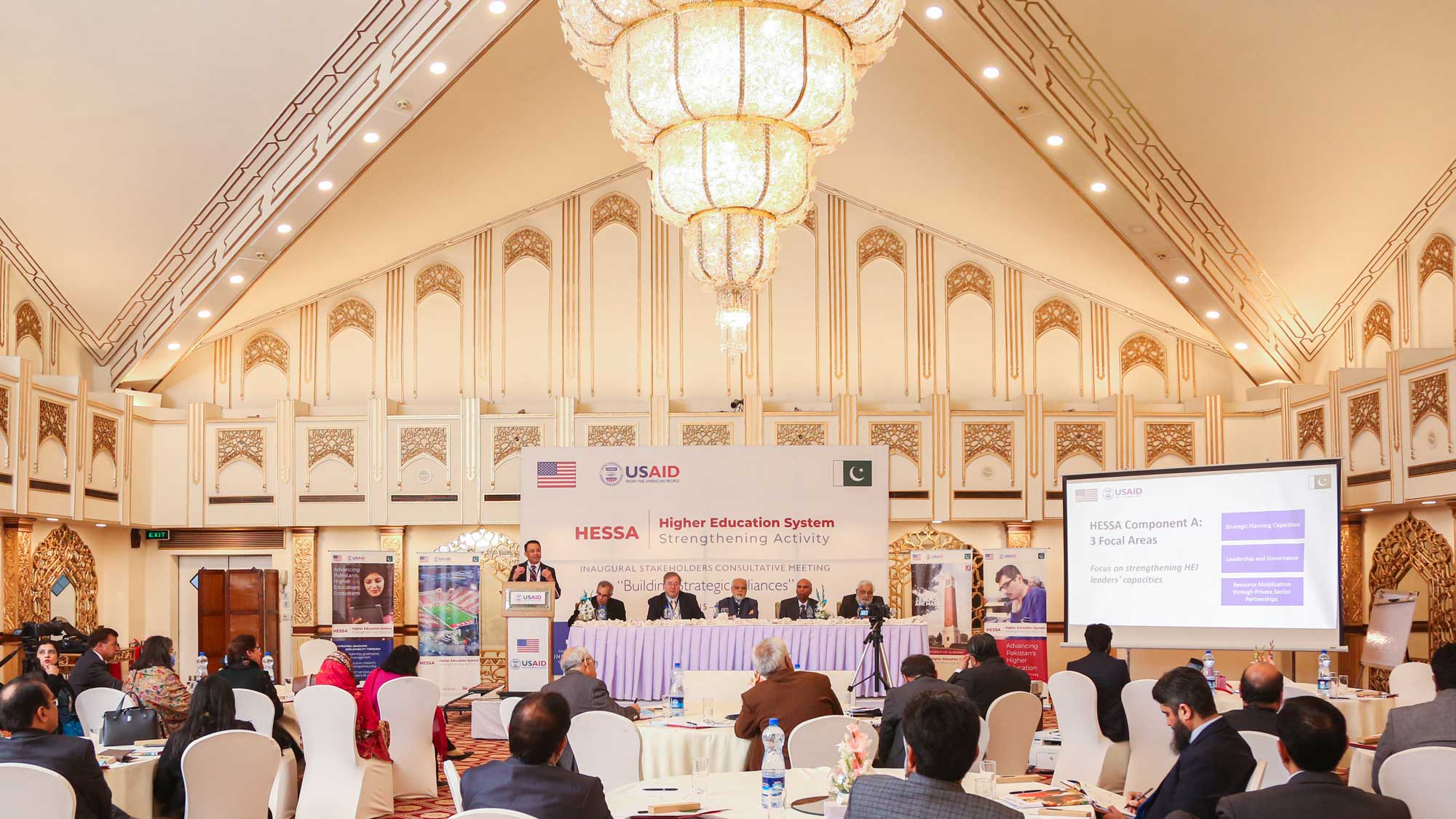University of Utah officials recently traveled to Islamabad, Pakistan to hold the first Stakeholders Meeting of the new Higher Education Systems Strengthening Activity (HESSA)—a United States Agency for International Development (USAID)—funded initiative aimed at advancing the country’s higher education system. A 5-year, $19 million grant was awarded to the U and partners by USAID to provide technical assistance for the project to advance the capacity of Pakistan’s higher education institutions and systems to develop employable graduates. Representatives from the U’s Office for Global Engagement, Department of Civil & Environmental Engineering and College of Education are leading the initiative. Other U.S. project partners include the University of Alabama and the Institute of International Education.

These U.S. institutions will work closely with Pakistan’s Higher Education Commission (HEC). Together, they will provide training aimed at bolstering the administrative systems, curriculum and student life supports that will ultimately help students meet the needs of the contemporary workplace.
HESSA-trained member institutions will then promote best practices in undergraduate and graduate education and strengthen the contributions of research universities to the country’s economy. “This important strategic initiative will increase access to and improve the quality of our higher education institutions in Pakistan,” said HESSA Chief of Party Aslam Chaudhry.
“The University of Utah is a global university with engagement in over 200 countries. This USAID grant builds on our existing relationships in Pakistan and will allow us to grow opportunities for Pakistani students and our educators,” said Taylor Randall, president of the University of Utah. “We look forward to working with our U.S. partners and Pakistan’s Higher Education Commission to strengthen Pakistan’s educational infrastructure and achieve its goal to provide students an excellent academic experience.”
The U has remained involved in Pakistan’s higher education development since the 2014 launch of the U.S.-Pakistan Center for Advanced Studies in Water—also a USAID-funded initiative, aimed at helping to train the next generation of the country’s water engineers. The reputation garnered during that project led to additional educational initiatives and capacity-building partnerships throughout the country.
“Expanding upon our long-standing higher education partnerships in Pakistan is an exciting endeavor that will foster the definition of academic rigor in the region,” said Michael Barber, chair, Department of Civil and Environmental Engineering and principal investigator, HESSA Project. “Our team enjoys exchanging knowledge and ideas to help international higher education institutions meet their evolving needs. In doing so, we learn so much about global challenges and opportunities that we can then bring back to Utah to share with our colleagues and students.”
The University of Utah is fast becoming known for international thought-leadership and the HESSA project is a continuation of that work. “Projects of this caliber make me very excited to be stepping into the role of Chief Global Officer at this time,” said Brian Gibson, who recently joined the U’s Office for Global Engagement. “We look forward to helping USAID deliver on its international development mission on behalf of the American people.”
University of Utah HESSA project management leadership:
Mike Barber
Department Chair, Civil and Environmental Engineering
HESSA Project Director
Cheri Daily
Executive Director, Office for Global Engagement Global Program Development, Marketing & Communications
HESSA Project Manager
Frankie Santos Laanan
Associate Dean for Faculty and Student Affairs, College of Education
HESSA Component Lead: Leadership
Randy McCrillis
Dean of Students, The University of Utah Asia Campus
HESSA Component Lead: Student Success

